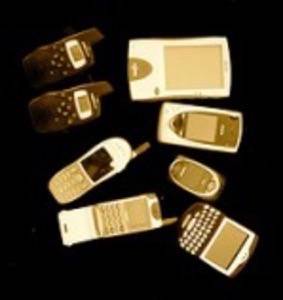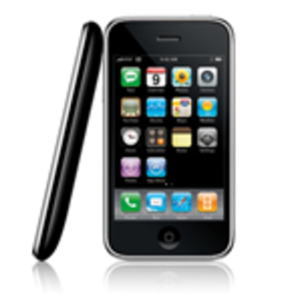Recently, researchers at the Nielsen Norman Group put the mobile web to the test in a usability study that looked at twenty different web sites on six different types of handsets. The results? The mobile web still leaves a lot to be desired. It’s so bad, in fact, that principal researcher Jakob Nielsen, co-author of the study, compared today’s mobile web to the web sites of the early 90’s.

But is the mobile web really to blame here for the usability issues? Or is this just a matter of people trying to surf a web that has evolved beyond what traditional cell phones and their awful built-in browsers can handle?
The Results of the Study
According to the new study, available as of yesterday from the Nielsen Norman web site, the average success rate for performing various tasks on the mobile web was only 59%. Compare that to 80% for the same tasks when performed on a PC.
“Observing users suffer during our … sessions reminded us of the very first usability studies we did with traditional websites in 1994,” Nielsen told USA Today. “It was that bad.”
Some of the tests involved in the study had participants heading to specific web sites, including Fandango.com for movie reviews and Anthropologie.com for a shopping task. Other tests were more general and open-ended, allowing users to do web searches to find the answers to various questions. As they surfed, participants came across sites that were both mobile-ready and those that were not.
Not surprisingly, the researchers found that success rates dramatically improved when surfing the mobile versions of the web sites – by 20%, to be exact. Also not surprising was the fact that smartphone owners had less trouble performing the same tasks as users of traditional cell phones. For example, iPhone owners had an average success rate of 75% while other smartphones averaged 55%. Traditional cell phones, however, only averaged 38%.
Is the Mobile Web Unusable or is it the Devices People Use to Surf It?
The study calls into question the usability of today’s mobile web, pointing out contributing factors to the problem which include things like small screens, awkward input on mini-keyboards, poorly designed sites, and bandwidth issues.
But the overall takeaway from this research feels like a case of putting hard numbers to information we already knew: surfing the web with your hot pink Razr’s built-in browser is an experience that leaves a lot to be desired.
It is, in fact, the rise of the smartphone that has made the mobile web such a popular destination on both consumer devices and those designed for business use, like the Blackberry. Prior to what we can only call the “smartphone explosion,” not much thought was given to the mobile web by users, web site owners, or by the handset manufacturers whose built-in browsers seemed to make the problem even worse in some cases. Data plans were an expensive luxury, too, so many people didn’t even bother to add on the extra package that made mobile web surfing possible.
But when the smartphones took off, a movement in which Apple’s iPhone has had a major impact, the mobile web felt the ripple effects of all the new users coming online. Not only were companies designing mobile sites, they were taking the time to design iPhone-specific sites, too. Although the iPhone wasn’t the first smartphone in existence by any means, it has been a driving force of change for the smartphone industry as a whole. With its highly usable Safari web browser and touchscreen, other manufacturers had to step up their game in order to compete.

These days, every cell phone carrier offers multiple types of smartphones in their lineup from touchscreen Blackberrys to Android-powered phones to the iPhone and more. On these phones, the usability of the mobile web is not really an issue.
So what is this study really saying, then? If you want to surf the mobile web with ease, get a smartphone? Or perhaps it’s pointing out how terrible the browsers are on traditional cell phones, seeing as how those who struggled the most were using what many would call “old school” handsets (aka “feature phones”). It’s also interesting that no comparisons were made between the basic built-in browsers and a user-installed upgrade like Opera. With Opera Mini’s site compression and zooming abilities, for example, accessing sites – both mobile and non – on any phone becomes much easier.
Ultimately, though, the market for feature phones may be on the decline, making usability issues such as the ones found in this study of less importance going forward. In March of this year for instance, IDC reported a decline in mobile phone shipments due to the poor economic conditions worldwide. What was really interesting, though, was that the smartphone segment of this market, while not unaffected, still remained in positive growth while the rest of the market was poised to expect an 8.3% downturn. As noted by the IDC report, that “speaks volumes about the potential upside for these devices when the market turns.” What it means is that the market for feature phones is fading out. In the future, when every phone becomes a smartphone, the usability of the mobile web probably won’t seem so bad.
Image credit: flickr user thms.nl










